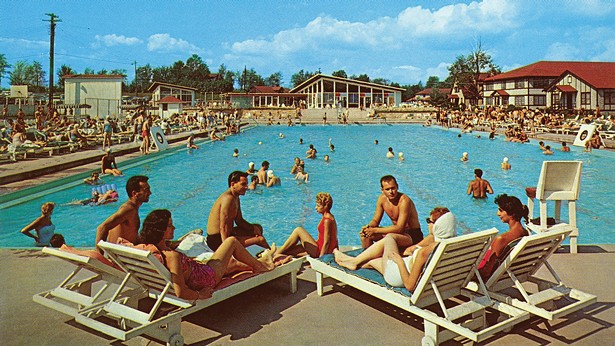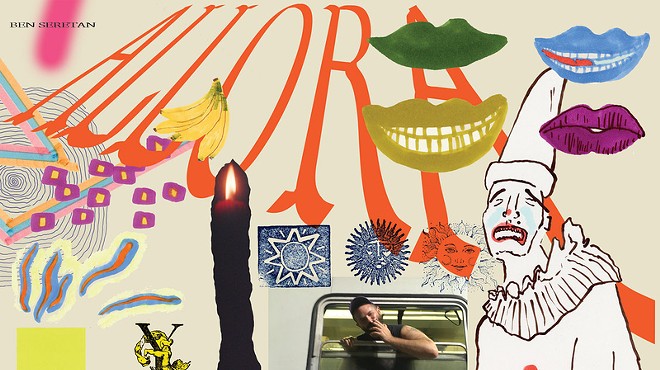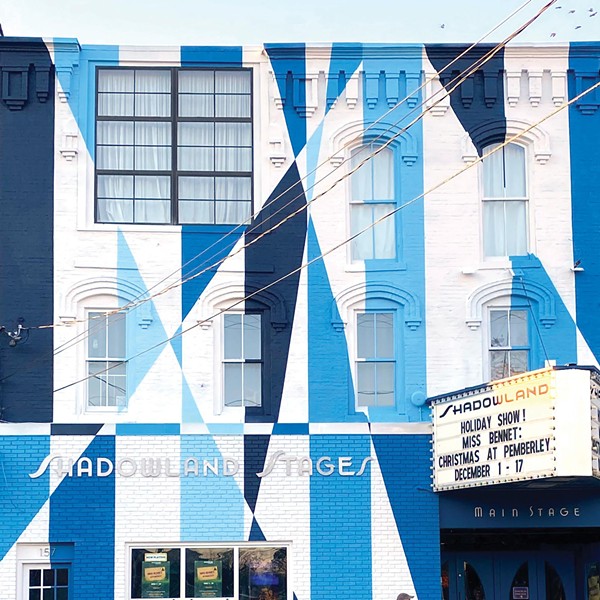During summer stays at Borscht Belt resorts, some of the most notable comedians of the second half of the 20th century, like Mel Brooks, Lenny Bruce, and Jerry Seinfeld, sharpened their one-liners and mused about Jewish culture. They cultivated a distinct style of modern Jewish humor: smart, incisive, and self-aware. Now, the region's history, including the influence these artists continue to have on American culture, is the subject of an upcoming museum and festival.
The Borscht Belt was made up of a series of Jewish-owned resorts in the Catskills where Jewish people came together when antisemitism prevented them from going elsewhere. The museum is scheduled to open in 2025, and exhibits will feature archival film, artifacts, and ephemera. One such artifact is a neon sign from Kutsher's Hotel and Country Club, one of the longest-running resorts. A pop-up exhibition can be found through the summer at the site of the museum, 90 Canal Street, and the first annual Borscht Belt festival will be held July 28–29.
The project was initially conceived of in the 1990s by Jack Godfrey, whose family owned a hotel in the area, and who went on to work in the hospitality industry. Now, the advisory board includes names such as Fran Drescher and Harvey Fierstein. Andrew Jacobs, the museum board president and a New York Times reporter, is the director of a 2008 documentary, Four Seasons Lodge, about a group of Holocaust survivors who shared a bungalow colony in Ellenville. Jacobs emphasizes the role of the Catskills as a refuge for those facing persecution, including Jewish people, people of color, and members of the queer community, who all founded resorts that served as safe community gathering spaces.
Jacobs also hopes the museum and festival can play a role in the economic revitalization of Ellenville, which was once home to several resorts. However, when the resorts started to lose popularity, the town struggled. "People are embracing [the project] because everyone in Ellenville has a connection to this Borscht Belt past," Jacobs says. Currently, Ellenville is experiencing economic growth as tourism reaches new highs, and permanent residents settle in after pandemic-motivated relocations. Events like the festival, which is a block party with food, comedy, and talks, create support for local businesses and honor the town's past.

Food, in the Jewish tradition, brings people together and retains centuries of history. At the festival, Canal Street will be lined with food trucks selling knishes, pastrami sandwiches, pickles, bagels, black and white cookies, challah, and borscht.
Given the Borscht Belt's entertainment history, the festival features a lineup of comedy shows at the Shadowland Theater. On July 29 at 5:30pm is "Immigrant Jam," a stand-up show featuring immigrant and first-generation New Yorkers hosted by Lucie Pohl. At 10pm there's "Weeding Out the Stoned": a crowd of comedians enter and only one is sober. Who's not high? It's up to the audience, guided by Alex Grubard, to figure it out.
Visitors can also attend history talks at Market Street Studios. "From Pushcarts to Poolside: An Immigrant History of Food" is hosted by Liz Alpern and Jeffrey Yoskowitz, coauthors of The Gefilte Manifesto: New Recipes for Old World Jewish Foods, and examines food history in the Jewish communities of the Lower East Side. "Stop at the Red Apple: A Journey Back in Time," is presented by Elaine Freed Lindenblatt, whose parents established the iconic Red Apple Rest, a popular stop on the way upstate.
"This institution [is] not just a vehicle for remembering the past, but also creating possibilities for contemporary [Jewish] arts and culture," says Jacobs. From comedians who revolutionized comedy to vendors introducing traditional food to festival goers, Jewish creativity and innovation persists.

















